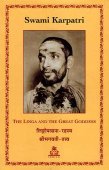Devisukta, Devi-sukta, Devīsūkta: 6 definitions
Introduction:
Devisukta means something in Hinduism, Sanskrit. If you want to know the exact meaning, history, etymology or English translation of this term then check out the descriptions on this page. Add your comment or reference to a book if you want to contribute to this summary article.
In Hinduism
Purana and Itihasa (epic history)
Source: Cologne Digital Sanskrit Dictionaries: The Purana IndexDevīsūkta (देवीसूक्त).—Utterance of, in dīkṣā.*
- * Brahmāṇḍa-purāṇa IV. 43. 11.

The Purana (पुराण, purāṇas) refers to Sanskrit literature preserving ancient India’s vast cultural history, including historical legends, religious ceremonies, various arts and sciences. The eighteen mahapuranas total over 400,000 shlokas (metrical couplets) and date to at least several centuries BCE.
Languages of India and abroad
Sanskrit dictionary
Source: DDSA: The practical Sanskrit-English dictionaryDevīsūkta (देवीसूक्त).—a Sūkta addressed to Devī.
Derivable forms: devīsūktam (देवीसूक्तम्).
Devīsūkta is a Sanskrit compound consisting of the terms devī and sūkta (सूक्त).
Source: Cologne Digital Sanskrit Dictionaries: Aufrecht Catalogus Catalogorum1) Devīsūkta (देवीसूक्त) as mentioned in Aufrecht’s Catalogus Catalogorum:—(Ṛv. X, 125). Oxf. 298^b. 398^a. B. 1, 12. 14. Ben. 45. Haug. 44. Rādh. 27. Oudh. Xvi, 20. Xviii, 2. Xix, 12. Np. Viii, 50. X, 38.
—[commentary] L. 3173.
—[commentary] by Rāmānandatīrtha. Mentioned L. 1017.
2) Devīsūkta (देवीसूक्त):—vaid. Oudh. Xx, 2. Xxi, 6. 14. Xxii, 24.
—[commentary] L. 4163.
3) Devīsūkta (देवीसूक्त):—from the Rudrayāmala. [Bhau Dāji Memorial] 88. Peters. 4, 42.
4) Devīsūkta (देवीसूक्त):—in 8 verses, from the Ṛv. 10. 125. L.. 13.
5) Devīsūkta (देवीसूक्त):—[tantric] Ak 987.
Source: Cologne Digital Sanskrit Dictionaries: Monier-Williams Sanskrit-English DictionaryDevīsūkta (देवीसूक्त):—[=devī-sūkta] [from devī > deva] n. Name of Stotra
[Sanskrit to German]
Sanskrit, also spelled संस्कृतम् (saṃskṛtam), is an ancient language of India commonly seen as the grandmother of the Indo-European language family (even English!). Closely allied with Prakrit and Pali, Sanskrit is more exhaustive in both grammar and terms and has the most extensive collection of literature in the world, greatly surpassing its sister-languages Greek and Latin.
See also (Relevant definitions)
Partial matches: Devi, Shukta, Tevi.
Starts with: Devisuktavarnana.
Query error!
Full-text: Hiranyadevisukta, Durgadevisukta, Darshana, Diksa.
Relevant text
Search found 17 books and stories containing Devisukta, Devi-sukta, Devī-sūkta, Devīsūkta; (plurals include: Devisuktas, suktas, sūktas, Devīsūktas). You can also click to the full overview containing English textual excerpts. Below are direct links for the most relevant articles:
Notices of Sanskrit Manuscripts (by Rajendralala Mitra)
Nyaya-Vaisheshika categories (Study) (by Diptimani Goswami)
Systems of Indian Philosophy < [Chapter 1 - Introduction]
Anumana in Indian Philosophy (by Sangita Chakravarty)
(A). A Note on Indian Philosophy < [Chapter 1 - Introduction]
Markandeya Purana (Study) (by Chandamita Bhattacharya)
Śakti Worship < [Chapter 3]
Śaktism (worship of Śakti as the female goddess) < [Chapter 4]
Skanda Purana (by G. V. Tagare)
Chapter 20 - Origin of the Indradyumna Lake < [Section 2 - Puruṣottama-kṣetra-māhātmya]
Chapter 29 - The Lord Grants Boons to Indradyumna < [Section 2 - Puruṣottama-kṣetra-māhātmya]
Matsya Purana (critical study) (by Kushal Kalita)
Part 3 - Śāktism: The Devī-cult < [Chapter 4 - Religious aspects of the Matsyapurāṇa]
Related products

